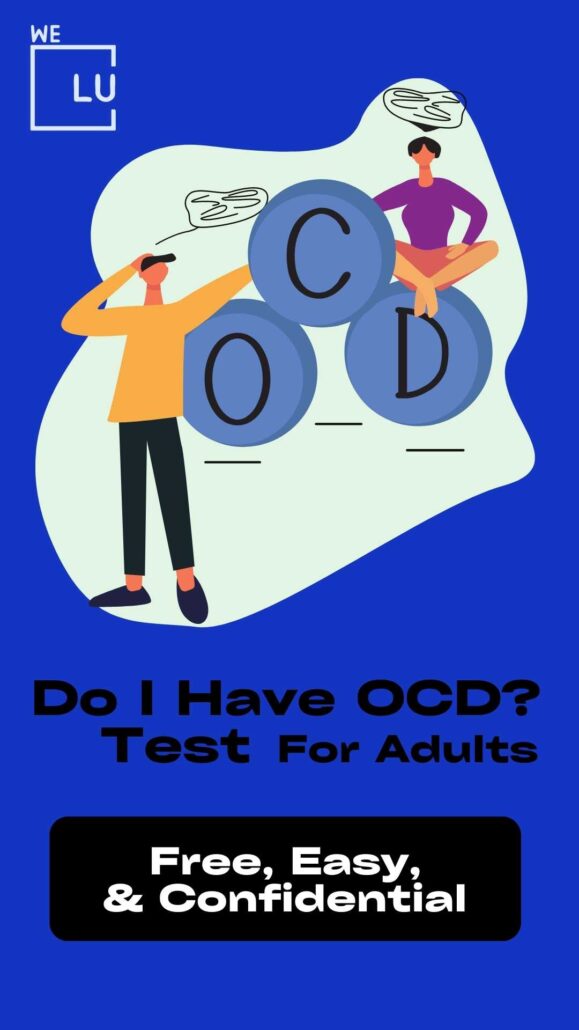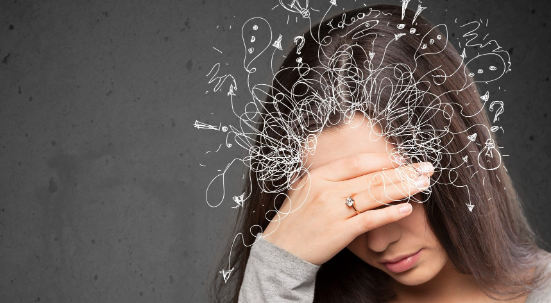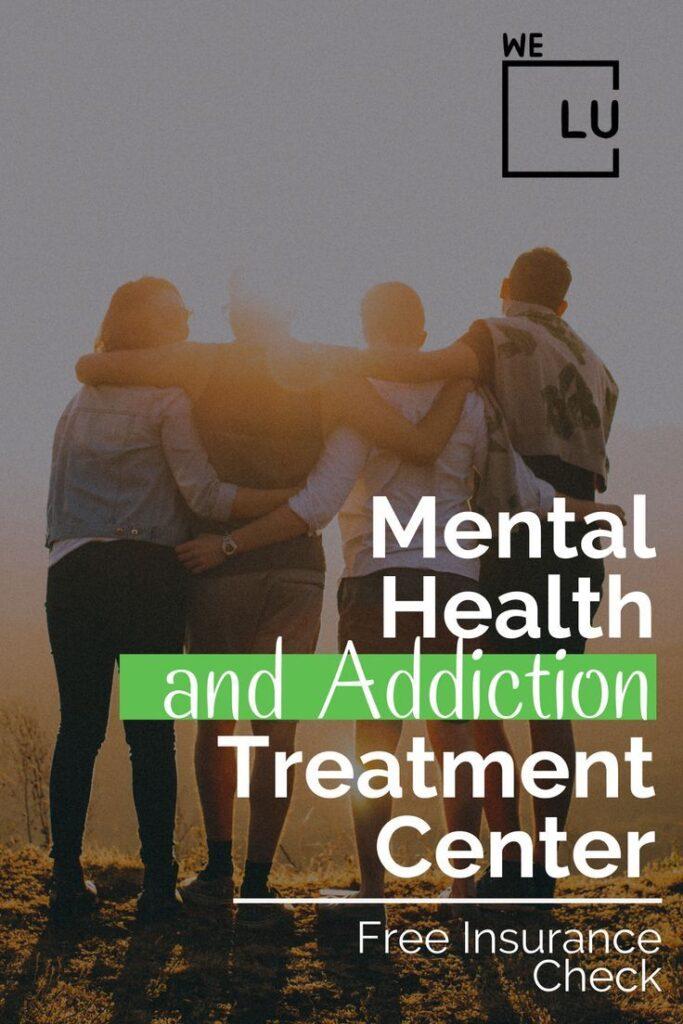What is Self Harm OCD?
Harm Obsessive-Compulsive Disorder (Harm OCD) is a challenging condition characterized by distressing and intrusive thoughts centered around causing harm to oneself or others. These thoughts can lead to intense anxiety and distress, often compelling individuals to engage in compulsive behaviors to alleviate their fears.
At We Level Up Treatment Center, we offer comprehensive and compassionate OCD medication treatment options designed to relieve the distressing symptoms of Obsessive-Compulsive Disorder effectively.
Is Harm OCD Dangerous?
Harm Obsessive-Compulsive Disorder (Harm OCD) is a mental health condition characterized by distressing and intrusive thoughts about causing harm to oneself or others. While these thoughts can be highly distressing and anxiety-inducing, individuals with Harm OCD typically do not intend to act on these thoughts. It’s important to understand that the harm-related obsessions in Harm OCD are often the exact opposite of a person’s actual values and intentions.
Harm OCD is not dangerous, as individuals with this condition typically have no desire or intent to harm themselves or others. However, the distress and anxiety caused by these obsessions can significantly impact a person’s quality of life and mental well-being. Therefore, seeking appropriate treatment and support is essential to manage Harm OCD effectively and improving one’s overall mental health.
Harm OCD Test
Suspect you have obsessive-compulsive disorder? Find out with our test for OCD. Answer all questions honestly and thoroughly to reflect your current state of mind. It’s never too late to seek help. You can start by taking We Level Up’s ‘Do I Have OCD Test.’ OCD is a common mental illness marked by persistent, uncontrollable thoughts (obsessions) and behaviors (compulsions) that individuals feel compelled to repeat.


Skip To:
Learn More:
- What are the 4 Types of OCD? Different Types of OCD
- Free Online OCD Test. Do I Have an OCD Test For Adults? Easy OCD Symptoms Test? Fast Test for OCD. Confidential Obsessive Compulsive Disorder Test.
- OCD Treatment, Medication Treatment for OCD, Obsessive Compulsive Disorder Treatment, Symptoms & Diagnosis
- What Are Cluster C Personality Disorders? Cluster A B C Personality Disorders
- Contamination OCD Symptoms, Signs and Treatment. How to Beat Contamination OCD. Emotional Contamination OCD.
- The Most Effective OCD Medication for Treatments & Recovery. Best Medication for OCD Intrusive Thoughts.
- Relationship OCD Guide, Symptoms, Causes, and Coping
Harm OCD Symptoms
Some common symptoms of Harm OCD include:
| Symptom | Description |
| Intrusive Thoughts | Recurrent, distressing thoughts of causing harm to others or oneself. |
| Fear of Losing Control | Constant worry about losing control over one’s actions and causing harm accidentally. |
| Mental Compulsions | Engaging in repetitive mental rituals or compulsive behaviors to alleviate anxiety. |
| Avoidance | Avoiding situations or triggers that may lead to harm-related thoughts. |
| Reassurance-Seeking | Seeking reassurance from others to confirm the absence of harm or wrongdoing. |
| Emotional Distress | Experiencing high levels of anxiety, guilt, or distress due to these obsessions. |
| Interfering with Daily Life | Significantly disrupting daily activities, relationships, and overall quality of life. |
Get Help. Get Better. Get Your Life Back.
Searching for Accredited Drug and Alcohol Rehab Centers Near You?
Even if you have failed previously and relapsed, or are in the middle of a difficult crisis, we stand ready to support you. Our trusted behavioral health specialists will not give up on you. When you feel ready or just want someone to speak to about therapy alternatives to change your life call us. Even if we cannot assist you, we will lead you to wherever you can get support. There is no obligation. Call our hotline today.
(844) 597-1011Discover Effective OCD Self Harm Medications at We Level Up Treatment Centers
Conquering OCD can feel isolating and arduous. Many individuals struggle to navigate this condition without support and frequently relapse in their efforts to manage symptoms.
Fortunately, We Level Up offers comprehensive therapy and treatment plans tailored for OCD. With our expertise, you can expect a more manageable journey towards recovery. Should you need guidance for rehab, our treatment advocates are available round the clock to assist you.
View more We Level Up treatment centers.
OCD Harm Fact Sheet
OCD Overview
Obsessions with excessive ideas trigger recurrent behaviors (compulsions). Unreasonable worries and obsessions (compulsive behaviors) are hallmarks of obsessive-compulsive disorder.
OCD frequently centers on ideas like a dread of germs or the requirement to organize objects in a certain way. Symptoms typically appear gradually and change over time. Both conversation therapy and medication are used as treatments.
OCD Symptoms
Behavioral: compulsive behavior, agitation, compulsive hoarding, hypervigilance, impulsivity, meaningless repetition of own words, repetitive movements, ritualistic behavior, social isolation, or persistent repetition of words or actions.
Mood: Anxiety, apprehension, guilt, or panic attack.
Whole body: fatigue or sweating.
Also standard are food aversion, nightmares, or rumination.
Types of OCD Disorders
- Contamination OCD.
- Checking OCD.
- Harm OCD.
- Hoarding OCD.
- Pure-O (Purely Obsessional) OCD.
- Symmetry and Ordering OCD.
- Sexual Orientation OCD.
- Relationship OCD.
- Religious OCD (Scrupulosity).
- Health Anxiety OCD.
What is Contamination OCD?
People with Contamination OCD worry excessively about being sick from or coming into contact with anything they consider dirty or contaminated, such as germs, dirt, chemicals, or diseases.
What is Harm OCD?
Harm Obsessive-Compulsive Disorder (Harm OCD) is a problematic disorder characterized by distressing and intrusive thoughts of harming oneself or others. These thoughts can cause severe worry and anguish, prompting obsessive behavior to calm them.
OCD Statistics
Delve into OCD medication statistics to shed light on the prevalence of medication usage, trends in prescription practices, and the broader impact of these medications on those with OCD. By examining these statistics, we aim to understand better medication’s role in the comprehensive management of OCD.
- Prevalence of Medication Usage: According to recent studies, approximately 60% to 70% of individuals diagnosed with OCD receive medication as part of their treatment plan. This underscores medication’s significant role in the multifaceted approach to managing OCD.
- Primary Medication Class – SSRIs: Selective Serotonin Reuptake Inhibitors (SSRIs) are the most commonly prescribed class of medications for OCD. Statistics reveal that around 50% to 60% of OCD patients are prescribed SSRIs as a first-line pharmacological intervention.
- Effectiveness of Medication in Combination with Therapy: Research indicates that combining medication and cognitive-behavioral therapy (CBT) yields the most effective results in treating OCD. Studies show that up to 70% of individuals experience noticeable improvements when medication and therapy are employed.
- Dosage Adjustments: It is not uncommon for healthcare providers to adjust medication dosages to achieve optimal therapeutic effects. Statistics indicate that around 30% of patients may undergo dosage modifications during their treatment.
2.5 million
OCD affects 2.5 million adults, or 1.2% of the U.S. population.
Source: National Institute on Mental Health
25%
The average age of onset is 19, with 25% of cases occurring by age 14. One-third of affected adults first experienced symptoms in childhood.
Source: ADAA
3x
Women are 3x more likely to be affected than men.
Source: ADAA

Get Your Life Back
Find Hope & Recovery. Get Safe Comfortable Detox, Addiction Rehab & Dual Diagnosis High-Quality Care.
Hotline(844) 597-1011What Causes Harm OCD?
The exact cause of Harm OCD, like other subtypes of obsessive-compulsive disorder (OCD), is not fully understood. However, it’s believed to result from genetic, neurobiological, and environmental factors. Here are some contributing factors that are thought to play a role in the development of Harm OCD:
- Genetics: There is evidence to suggest that genetics plays a role in the susceptibility to OCD and its various subtypes, including Harm OCD. Individuals with a family history of OCD or related anxiety disorders might be more predisposed to developing Harm OCD.
- Brain Chemistry: Neurotransmitters, such as serotonin, are believed to play a significant role in developing OCD. An imbalance in serotonin levels or how the brain processes this neurotransmitter might contribute to the obsessions and compulsions characteristic of Harm OCD.
- Brain Structure and Function: Neuroimaging research has shown differences in brain structure and function in individuals with OCD. Specific brain regions, such as the orbitofrontal cortex and the anterior cingulate cortex, are thought to regulate intrusive thoughts and anxiety, potentially contributing to Harm OCD symptoms.
- Environmental Factors: Stressful life events, trauma, or experiences that trigger anxiety might contribute to developing or exacerbating Harm OCD symptoms. Additionally, learned behaviors or coping mechanisms developed in response to stress could evolve into obsessive-compulsive patterns.
- Cognitive Factors: Certain cognitive factors, such as a heightened sense of responsibility or an intolerance of uncertainty, can contribute to developing and maintaining OCD symptoms. Individuals with Harm OCD might excessively worry about the potential consequences of their thoughts, leading to ritualistic behaviors to alleviate these worries.
- Personality Traits: Certain personality traits like perfectionism or high conscientiousness might make individuals more prone to developing Harm OCD. These traits could lead to persistent attempts to prevent the feared harm from occurring.

First-class Facilities & Amenities
World-class High-Quality Addiction & Mental Health Rehabilitation Treatment
Rehab Centers TourRenowned Addiction Centers. Serene Private Facilities. Inpatient rehab programs vary.
Addiction Helpline(844) 597-1011Proven recovery success experience, backed by a Team w/ History of:
15+
Years of Unified Experience
100s
5-Star Reviews Across Our Centers
10K
Recovery Success Stories Across Our Network
- Low Patient to Therapist Ratio
- Onsite Medical Detox Center
- Comprehensive Dual-Diagnosis Treatment
- Complimentary Family & Alumni Programs
- Coaching, Recovery & Personal Development Events
Harm OCD Intrusive Thoughts
Harm OCD intrusive thoughts are distressing and unwanted thoughts that involve causing harm to oneself or others. These thoughts are a hallmark of Harm OCD, a specific subtype of obsessive-compulsive disorder (OCD). It’s essential to note that these thoughts are not reflective of a person’s true desires or intentions but result from the OCD mechanism, which fixates on irrational fears and doubts.
- Harming Loved Ones: Unwanted thoughts of causing harm to family or friends.
- Self-Harm: Intrusive thoughts of hurting oneself.
- Violent Acts: Thoughts of committing violent acts against others.
- Loss of Control: Fear of losing control and acting on harmful impulses.
- Disturbing Images: Vivid mental images of harm happening.
- Morality Doubt: Questioning one’s morality due to these thoughts.
- Reassurance Seeking: Constantly seeking reassurance from others.
- Avoidance: Avoiding triggers to prevent these thoughts.
It’s essential to remember that experiencing these intrusive thoughts does not mean you are a threat to yourself or others. These thoughts are a manifestation of a mental h
World-class, Accredited, 5-Star Reviewed, Effective Addiction & Mental Health Programs. Complete Behavioral Health Inpatient Rehab, Detox plus Co-occuring Disorders Therapy.
CALL(844) 597-1011End the Addiction Pain. End the Emotional Rollercoaster. Get Your Life Back. Start Drug, Alcohol & Dual Diagnosis Mental Health Treatment Now. Get Free No-obligation Guidance by Substance Abuse Specialists Who Understand Addiction & Mental Health Recovery & Know How to Help.
Harm OCD Treatment at We Level Up Treatment Center
Treatment typically involves a combination of therapies and, in some cases, medication. Here’s a concise overview of practical approaches:
- Cognitive Behavioral Therapy (CBT): Specifically, Exposure and Response Prevention (ERP), a key treatment for OCD. ERP involves gradually exposing yourself to contamination triggers while resisting the urge to perform compulsive behaviors.
- Exposure: Confront feared situations, objects, or thoughts related to contamination in a controlled and gradual manner.
- Response Prevention: Avoid engaging in compulsive behaviors (e.g., excessive washing) that provide temporary relief from anxiety.
- Mindfulness-Based CBT: Integrating mindfulness techniques to manage anxiety and stay present during exposure exercises.
- Medication: Selective Serotonin Reuptake Inhibitors (SSRIs) can be prescribed to help manage OCD symptoms, often used in conjunction with therapy.
- Support Groups: Joining support groups can provide a sense of community and shared understanding.
- Family Involvement: Educate family members about OCD and involve them in the treatment process to provide a supportive environment.
- Lifestyle Factors: Adequate sleep, regular exercise, and a balanced diet can positively impact treatment outcomes.
- Self-Care: Enjoy enjoyable activities and practice relaxation techniques to manage stress and anxiety.
- Progress Monitoring: Track your progress to celebrate achievements and adjust treatment strategies.
- Flexibility: Be open to adapting treatment strategies based on your progress and feedback from your therapist.
Remember, the effectiveness of treatment varies from person to person. Working closely with a mental health professional experienced in treating OCD is crucial to developing a personalized treatment plan that suits your needs.
If you’re seeking professional help managing your OCD, consider the specialized OCD medication treatment programs available at We Level Up Treatment Center, where our experienced team is dedicated to supporting your journey of improved mental well-being.
Experience Transformative Recovery at We Level Up Treatment Centers.
See our authentic success stories. Get inspired. Get the help you deserve.
Start a New Life
Begin with a free call to an addiction & behavioral health treatment advisor. Learn more about our dual-diagnosis programs. The We Level Up Treatment Center Network delivers recovery programs that vary by each treatment facility. Call to learn more.
- Personalized Care
- Caring Accountable Staff
- World-class Amenities
- Licensed & Accredited
- Renowned w/ 100s 5-Star Reviews
We’ll Call You
Popular Harm OCD FAQs
-
Is self harm a form of OCD?
Self-harm is not a form of OCD; they are distinct conditions.
-
How does harm OCD intrusive thoughts feel like?
Harm OCD intrusive thoughts can feel distressing, irrational, and anxiety-inducing.
-
How can I stop harm OCD urges?
Stopping Harm OCD urges often involves cognitive-behavioral therapy (CBT), medication, and seeking professional help.
-
How to treat harm OCD thoughts?
Treatment for Harm OCD often involves therapy such as Cognitive-Behavioral Therapy (CBT) and, in some cases, medication. Therapy aims to help individuals manage their obsessions and compulsions effectively.
-
Can Harm OCD be cured?
Harm OCD may not be ultimately “cured,” but with proper treatment and management, individuals can significantly reduce its impact on their lives and improve their overall well-being.
-
Is harm OCD Common?
Harm OCD is standard, but its prevalence can vary among individuals and populations. It’s essential to seek professional help if you believe you or someone you know is experiencing Harm OCD symptoms.
Watch and Learn About What Is OCD and Take a look at the 4 Most Common Types of OCD
Search We Level Up Overcoming Self Harm OCD, Symptoms, and Treatment & Recovery Resources
Sources
[1] NIMH – https://www.nimh.nih.gov/health/topics/obsessive-compulsive-disorder-ocd/index.shtml Learn More: Contaminated OCD
[2] Obsessive-compulsive disorder. National Institute of Mental Health. https://www.nimh.nih.gov/health/topics/obsessive-compulsive-disorder-ocd/index.shtml. Accessed Sept. 3, 2019. Learn More: OCD fear of contamination
[3] Mental health medications. National Institute of Mental Health. https://www.nimh.nih.gov/health/topics/mental-health-medications/index.shtml#part_149856. Accessed Aug. 13, 2019. Learn More: ocd meaning medical
[4] AskMayoExpert. Obsessive-compulsive disorder (OCD). Mayo Clinic; 2019. Learn More: Types of OCD
[5] Depression basics. National Institute of Mental Health. https://www.nimh.nih.gov/health/publications/depression/index.shtml. Accessed Sept. 4, 2019. Learn More: harm ocd feels like i want it
[6] Obsessive-compulsive disorder (OCD). Merck Manual Professional Version. https://www.merckmanuals.com/professional/psychiatric-disorders/obsessive-compulsive-and-related-disorders/obsessive-compulsive-disorder-ocd. Accessed Sept. 3, 2019. Learn More: contamination OCD stories
[7] Obsessive-compulsive disorder. National Alliance on Mental Illness. https://www.nami.org/Learn-More/Mental-Health-Conditions/Obsessive-compulsive-Disorder/Overview. Accessed Sept. 3, 2019. Learn More: harm ocd thoughts
[8] Suicidality in children and adolescents being treated with antidepressant medications. U.S. Food and Drug Administration. https://www.fda.gov/drugs/postmarket-drug-safety-information-patients-and-providers/suicidality-children-and-adolescents-being-treated-antidepressant-medications. Accessed Aug. 13, 2019. Learn More: Types of OCD, ocd ruining relationship
[9] Obsessive-compulsive disorder. In: Diagnostic and Statistical Manual of Mental Disorders DSM-5. 5th ed. American Psychiatric Association; 2013. https://dsm.psychiatryonline.org. Accessed Sept. 3, 2019. Learn More: Types of OCD, ocd and intimate relationships
[10] Coping with Stress – Centers for Disease Control and Prevention Learn More: self harm ocd stories





